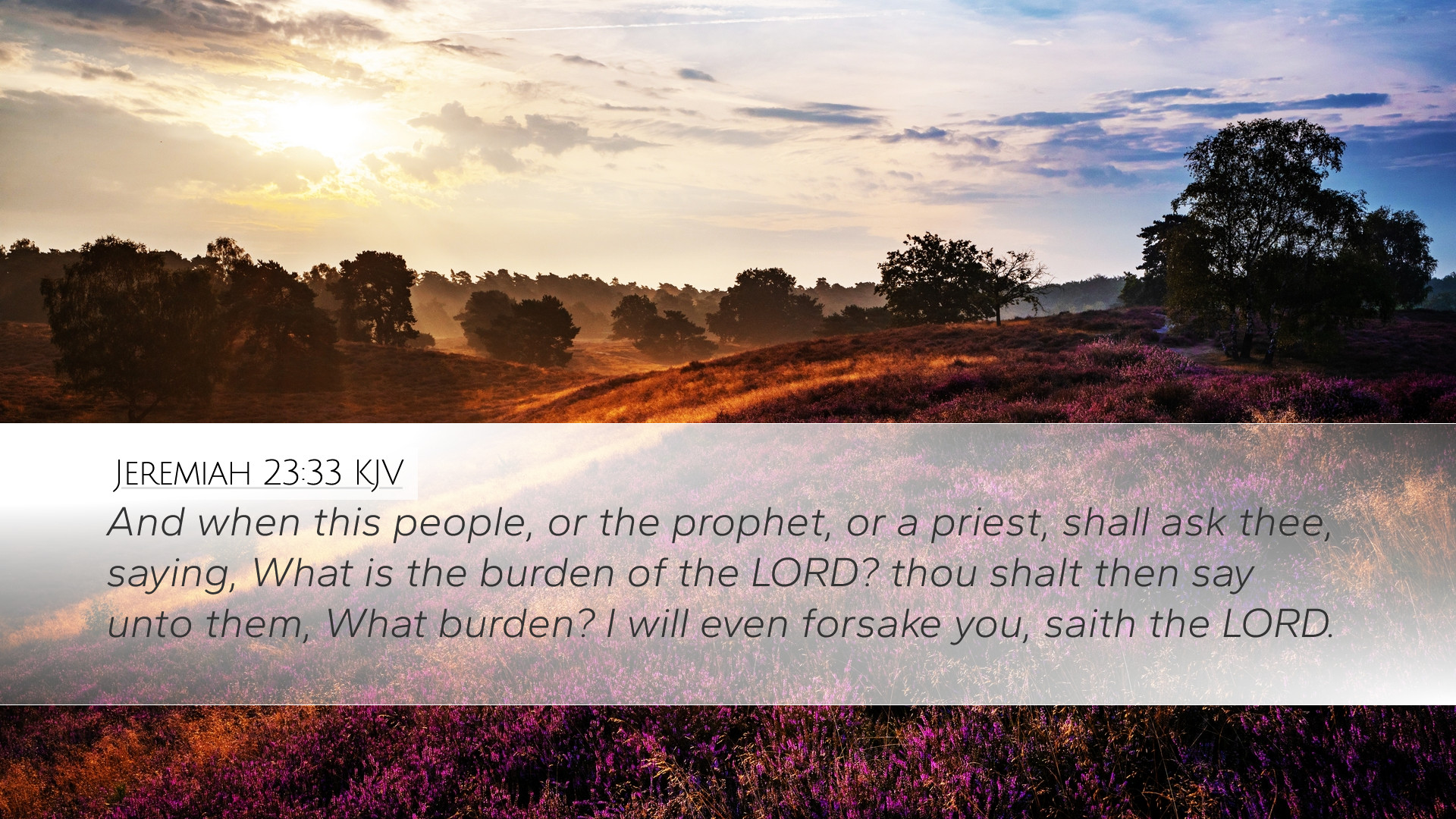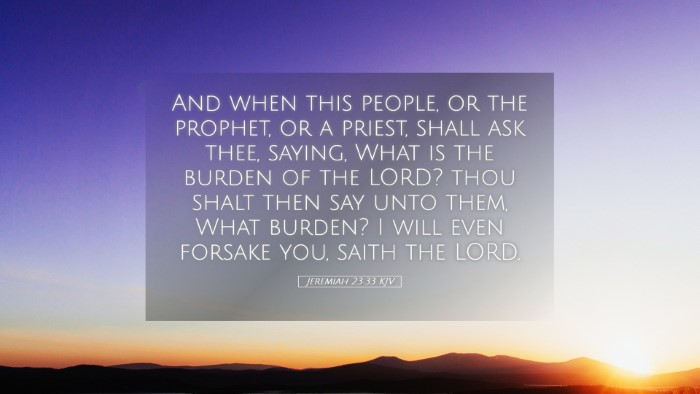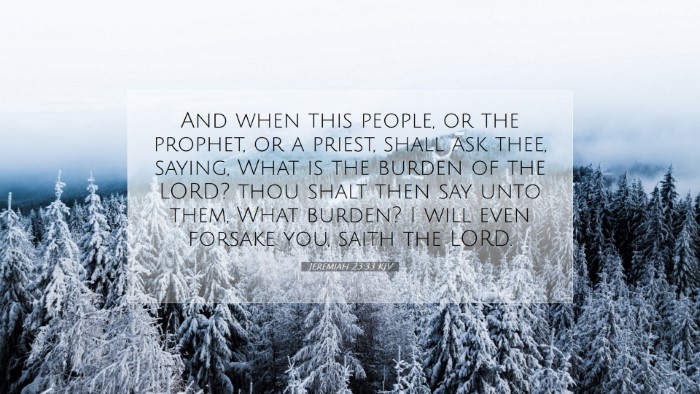Bible Commentary on Jeremiah 23:33
This commentary explores the profound message of Jeremiah 23:33, which serves as a pivotal reflection on the role of prophets and the nature of divine revelation. It addresses the responsibilities of spiritual leaders and the consequences of their actions.
Verse Background
Jeremiah 23:33 states:
"And when this people, or the prophet, or a priest shall ask thee, saying, What is the burden of the Lord? thou shalt then say unto them, What burden? I will even forsake you, saith the Lord."
This verse is part of a larger discourse where God addresses the false prophets and priests who mislead the people of Israel. The term "burden" denotes both an oracle and a heavy weight that the prophets are supposed to carry in their ministry.
Understanding the Context
Jeremiah prophesied during a tumultuous time in Judah's history, marked by moral decay, idolatry, and the impending threat of Babylonian invasion. He confronts the leaders of Israel who claim to speak for God, yet distort His messages.
Insights from Matthew Henry
- Challenge of False Prophets: Henry emphasizes the significance of accountability among prophets. When the people ask about "the burden of the Lord," their inquiry highlights a desperate search for divine guidance within a society rife with false assurances.
- God's Rejection of Falsehood: According to Henry, God's response underscores His displeasure with those who falsely proclaim His messages. The use of "What burden?" indicates God’s intent to disassociate from their false prophecies.
- Call to Authenticity: It serves as a clarion call for leaders to be truthful and transparent in their ministry, warning that divine forsaking is the fate of those who mislead.
Insights from Albert Barnes
- Burden as a Divine Message: Barnes explores the duality of "burden" as both a message and a weight. He notes that true prophets bear the burden of God’s word sincerely, while false prophets exploit it for personal gain.
- The Nature of Divine Judgment: Barnes elucidates that the response to the inquiry reveals a shift in divine attitude. By stating "I will even forsake you," God communicates the severity of His abandonment of the unfaithful leadership.
- Call for Responsibility: The commentary calls attention to the profound responsibility carried by spiritual leaders to faithfully convey God's truth rather than their own interpretations.
Insights from Adam Clarke
- Contextual Analysis: Clarke provides a thorough analysis of the context leading up to this verse, highlighting the prevailing controversies regarding prophetic claims of divine communication.
- Impact on Community: Clarke emphasizes that the failure of leaders to represent God accurately leads to communal disaster, emphasizing that when leaders stray from truth, the entire community suffers.
- Encouragement for Genuine Prophets: He also encourages those genuinely called to prophetic ministry to maintain their integrity and fidelity to the true word of God, contrasting their duty against the backdrop of societal corruption.
Theological Implications
Jeremiah 23:33 carries profound theological implications regarding authority, accountability, and the authenticity of spiritual leadership. It challenges spiritual leaders to reflect on their responsibilities and the weight of their words.
The Role of Prophets
The verse highlights the crucial role of prophets as intermediaries between God and the people. Their duty is not merely to deliver messages but to embody divine truth, leading others towards righteousness and faithfulness.
Consequences of Leadership Failure
When leaders fail in their responsibilities, they lead others astray, resulting in spiritual decay. The verse warns that God’s repercussions can be severe, as He will ultimately forsake those who mislead His flock.
Call to Repentance and Restoration
In the larger context of Jeremiah, this verse serves as a call not only for prophets but for the entire community to return to authentic worship and alignment with God’s will.
Conclusion
Jeremiah 23:33 provides a sobering reminder of the weightiness of prophetic ministry and the necessity for genuine faithfulness in proclaiming God’s word. Scholars, pastors, and students are called to engage deeply with this text, examining it within the context of true divine revelation and the perils of leadership failure.


